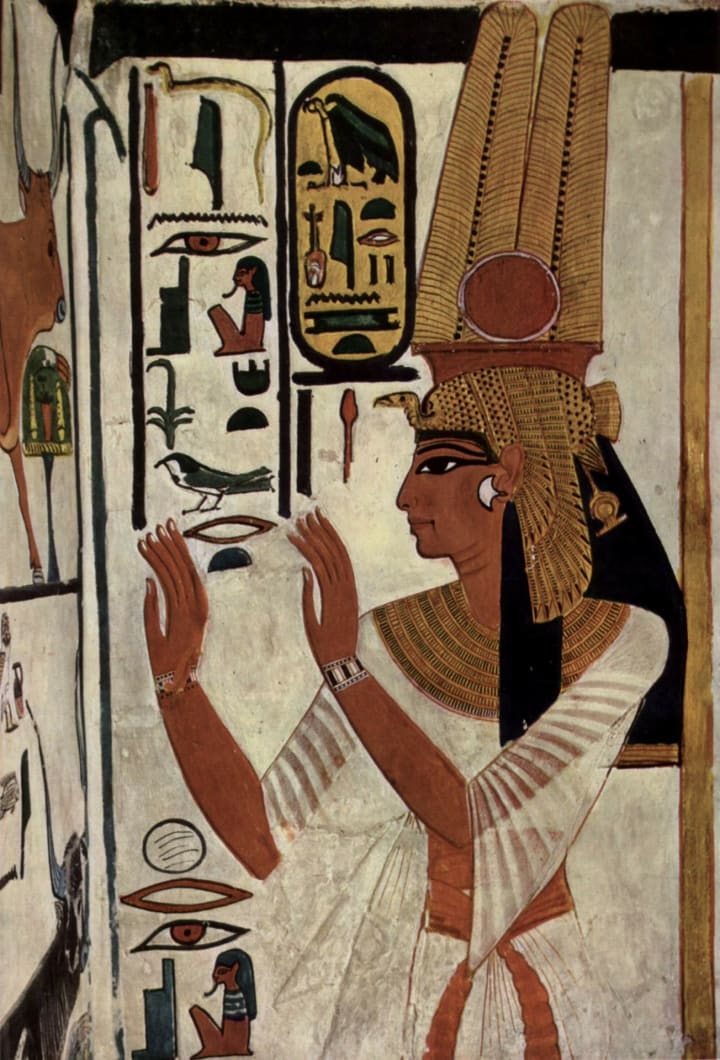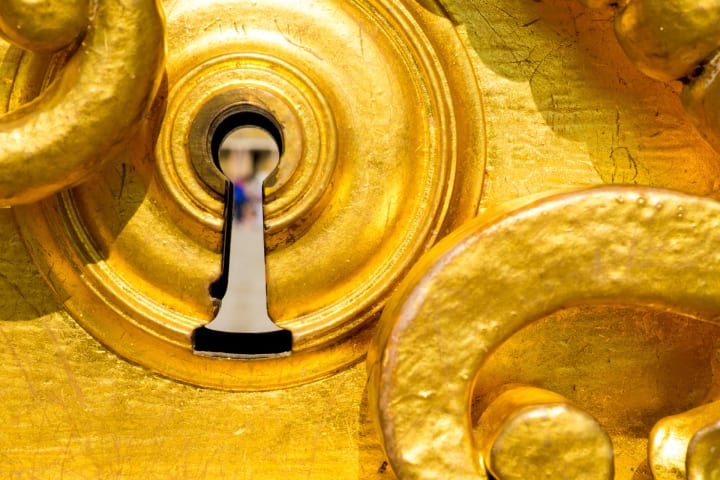The Doorknob
From Facebook to Ancient Egypt: everything you always wanted to know about doorknobs (but were afraid to ask)

The contributor to a well-known writing hub was outraged. Outraged! He had scored a quickie interview with one of the world’s leading scientists, but he was [darned] if he could come up with the writing hub’s required 600 word-minimum.
What kind of a demand is that to impose on the would-be Hemingway in the household?
It was right there, though, in the writing hub’s community guidelines, in plain black-and-white:


Sure, social-media platforms draw a lot of user complaints, but that’s more often because of upper-word limits, not the other way around.
Jack Dorsey, Biz Stone and others created Twitter in March 2006 in part because social-media types are so [darn] long-winded.
So [darn] long-winded in fact that, limiting tweeps to 140 characters was — if not a crime against humanity exactly — irksome to too many Twitter users. So, in November 2017, Jack & Co. upped the ante to 280 characters. Today, Twitter has 330 million users. They must have done something right.
Anyway, back to the outraged contributor. He was outraged! Perhaps I’ve mentioned that.
Yes, he had good notes from the interview, but it was impossible to pad that out to 600 words. It can't be done.
Sadly, some of the outraged contributor’s Facebook followers were having none of it.
“Hey,” one of them posted, “I can write 600 words about a doorknob.”
“And I would read it!” another replied.
Alrighty then.
Ladies and gentlemen: Without further ado I give you 600 words (give or take) about — wait for it — a doorknob.
THE DOORKNOB

The doorknob was shiny and round. As doorknobs go, this one was unusually shiny and round. It was so shiny and round people would stop in the office hallway, look at the closed door and think to themselves: That is one shiny and round doorknob.
It became a topic of conversation — “Can you believe how shiny and round that doorknob is?” — but then the boss came along and ruined everything by telling them they were wasting company time. He wasn’t paying them to stand around and talk about a shiny and round doorknob.
I mean, let’s get serious here: That’s why he had the office watercooler removed in the first place. He was tired of the staff gathering around the office watercooler and gossiping about shiny and round doorknobs. Get back to work, he told them, or else.

But they had put a seed of doubt in his mind.
He found he couldn’t take his mind off the doorknob, how shiny and round it was.
Every time he tried to concentrate on his work, he saw shiny and round doorknob. This was wrong. This was irksome. It was getting out of hand.
The boss knew that if he didn’t settle the issue in his mind there and then, it would keep him awake at night — and then what use would he be to the company if, the following morning, he was peevish and snappish and lashing out at the employees because he was sleep-deprived and couldn’t do his job properly.
And all this over a silly doorknob. Yes, it was shiny and round, but it was becoming a distraction.

Clearly, he needed to do something. If you know a thing is so, it’s so. If you know it’s not, it’s not. Descartes said that. Or maybe it was the janitor. Either way, it made sense to him.
He decided to deal with it by learning everything he could about doorknobs, but in as short a period of time as possible. He was being paid to work after all, not think shiny and round doorknobs all day.
He logged onto his computer, mindful that the company monitored employees’ online searches, even bosses. If someone in accounting or, God forbid, his own boss confronted him, he could always tell them he was researching doorknobs in case they needed to buy a new one.
After all, if there was a fire, and the doorknob didn’t work, the company could be held liable.
“Today we have smart locks,” one lock-specific website began. “Back then we had animal pelts. Whether or not you’ve ever wondered about the history of doorknobs, their origin is more interesting than you might think.”
Ah ha! the boss thought to himself. This looks interesting.
His employees, walking by in the corridor, glanced in the glass partition window and wondered why the boss seemed preoccupied all of a sudden.
No matter.
The longer he was preoccupied with something else, the less chance there was he’d waste time by bothering them. Perhaps they might even be able to get some work done, without his constant interfering and second-guessing.
The boss learned that the Ancient Egyptians, some 5,000 years ago, used animal hides as doors, so they didn’t need doorknobs at all.
That sounded like something Keanu Reeves might do.

By the late 1500s, French nobles were using knobs. Yes, that was France, but the French aren’t that outré. Sometimes an idea turns out to be a good idea, even if it was only an idea to begin with. Descartes said that, too.
In France at the time, nobles were afforded individual rooms. Voila! Doorknobs were invented for privacy’s sake, hand-crafted to the noble-in-question’s personal taste. Louis XIV had highly decorative door knobs designed and installed both for himself and his courtiers in the Palace of Versailles.
It had more to do with status and opulence than actual security, but why quibble? They were shiny and round, and they looked good. That’s what mattered.
The peasants had to do without doorknobs, however. They didn’t have food, let alone individual rooms. That’s why there was a Revolution.

Doorknobs became increasingly prevalent in the USA after the American Revolution. American revolutionaries and the Founding Fathers needed something to keep English scum out of their homes. Doorknobs! With locks, of course.
Americans began producing their own doorknobs, rather import them from England. Early Colonial homes typically had doors a mere quarter-inch thick, but as the doors themselves grew thicker and sturdier — to keep English scum out, remember — new locks needed to be designed, and doorknobs to go with them. More than 100 US patents were granted for door knobs from 1830-1873.

Today, most if not all doorknobs are made in America.
Now you know. It’s amazing what you can learn on the Internet.
The boss learned that some early knobs were so complex that users required special training to know how to operate them. That made him think.
His employees were not bright. They only thought they were. He had to think of everything. That’s why he was the boss.
And then a thought suddenly came to him, just like that.
A smart lock!
“Alexa, open the door” — that kind of thing.
So he called maintenance and had them remove the shiny and round doorknob in the hall and replace it with a smart lock.
The employees were outraged, but what could they do. He was the boss.

And that was the last anyone heard about the shiny and round door knob.
Okay, that was 900 words, not 600. But you get the point.
Have a nice day!
•
You can join some great Facebook groups for Vocal writers like Vocal Media Creators Hub to be more active in the community.
(https://www.facebook.com/groups/1511757102346213)
It’s a good place to share and get feedback about your work, or find encouragement when you’re struggling with a piece. Just remember to use the hashtag #weeklythread whenever you post a comment or leave a reply.
About the Creator
Hamish Alexander
Earth community. Visual storyteller. Digital nomad. Natural history + current events. Raconteur. Cultural anthropology.
I hope that somewhere in here I will talk about a creator who will intrigue + inspire you.
Twitter: @HamishAlexande6






Comments
There are no comments for this story
Be the first to respond and start the conversation.